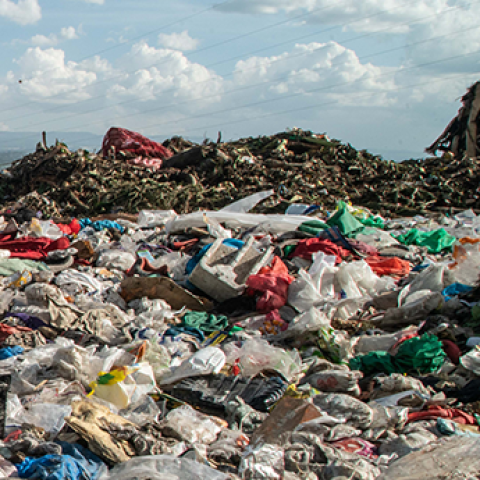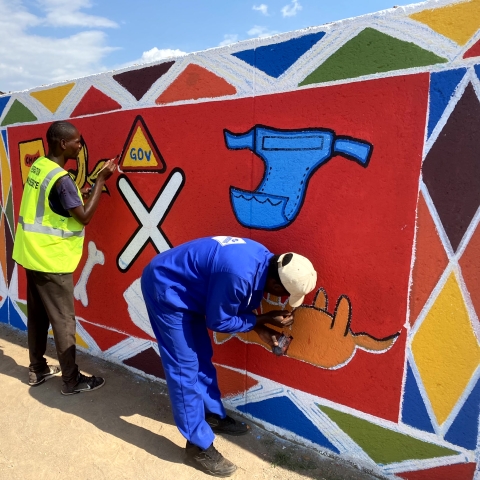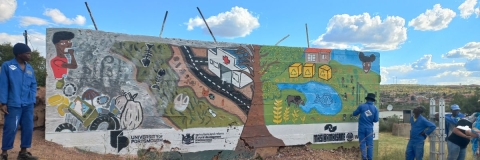
Uncontrolled plastic waste disposal is a serious problem in KwaMhlanga, Mpumalanga, South Africa and threatens the environment and human health. Unmanaged waste is often burned, contributing to climate change and poor air quality.
Using street art, theatre and song the Masibambisane project aimed to encourage changes in behaviour and attitudes towards waste management, reduce open dumping and burning of waste, and increase plastic recycling.
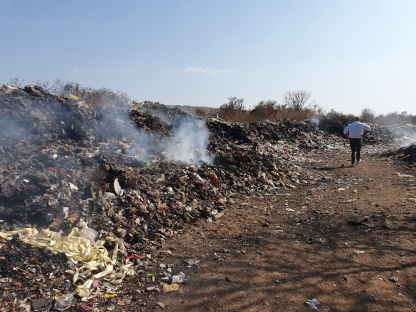
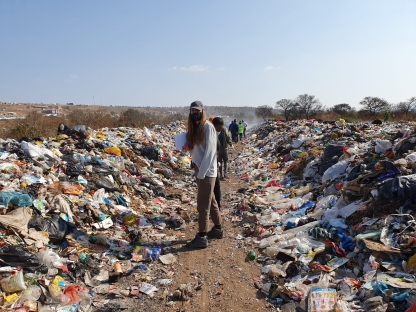
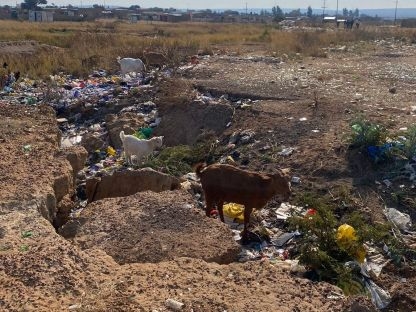
About this project
Project dates: June 2022 - March 2023
The University of Portsmouth’s Revolution Plastics team collaborated with international development organisation WasteAid, and provincial environmental government department, DARDLEA, to deliver the initiative as part of a wider feasibility study to test approaches to improve recycling of low value plastics.
Dr Cressida Bowyer and Stephanie Northen travelled to KwaMhlanga to work with local artists, musicians, waste reclaimers and local leadership, to co-develop a creative sensitisation campaign. Murals, theatre skits, and music were used to raise awareness about the value of recycling, and to promote project interventions such as recycling bins and waste separation bays. The campaign addressed the needs of locals, and was designed to appeal to the regional Ndebele culture while still being able to reach large audiences despite language or literacy barriers. Trusted local voices delivered the messages, which reinforced the authentic community-driven waste management approach and promoted community action.
The project aimed to increase recycling at the household level, and to reduce the widespread littering of plastic. The South Africa Plastics Pact set a national target for 70% of plastic packaging to be effectively recycled by 2025.
The area is characteristic of many underserved regions when it comes to plastic waste collection and recycling. Some waste is taken to the municipal dumpsite if transport is available and the motivation is there. However, most waste is typically taken to the nearest dumping area and discarded. The waste is very mixed, with little separation into recyclables and non-recyclables - plastic nappies are prevalent. Informal waste reclaimers pick through and reclaim uncontaminated high value plastic waste. The remainder is either burned or buried when the volume becomes problematic.
Project outcomes
Masibambisane music video
*Music*
Nathi:
I’m now chasing away plastics
They asking what’s going on
They say that I’m crazy
But I’m making money
I’m now chasing away plastics
They asking what’s going on
They say that I’m crazy
But I’m making money
This world
Don’t act like you don’t see it
The filth is embarrassing
Yes, my brothers this world
This world
Don’t act like you don’t see it
The filth is embarrassing
Yes, my brothers this world
Hey black nation
The land is yours
Take it and give it love
You’ll see it will live for you
Hey black nation
The land is yours
Take it and give it love
You’ll see it will live for you
Go down
And pick it up
Go down
Pick up the bottle
Go down
Pick up the papers
Go down
Pick up the plastics
Penny:
I ask that we pick up bottles, papers, and plastic
The old and the young
Let’s work together
And make Kwa-Mhlanga clean
And make things happen
So, the dream can come true
Because we are working together
Reuse, recycle, recirculating
We wasting no time
We calculating
We cleaning our land go eco friendly
Peter:
Brothers and sisters
Masibambisane to make it cleaner
Buyback centres can feed us
No no it's not rubbish
It's extra income on the side
Brothers and sisters
Masibambisane to make it cleaner
Buyback centres can feed us
No no it's not rubbish
It's extra income on the side
Retracing our trade
Masibambisane
Retracing our trade
Masibambisane
Retracing our trade
Masibambisane
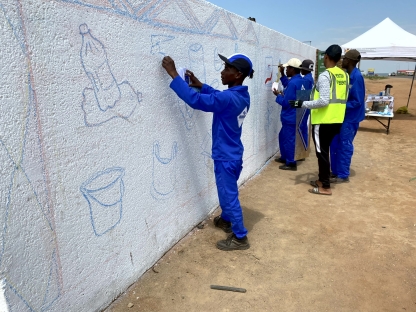
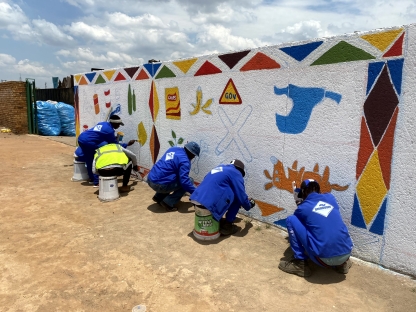
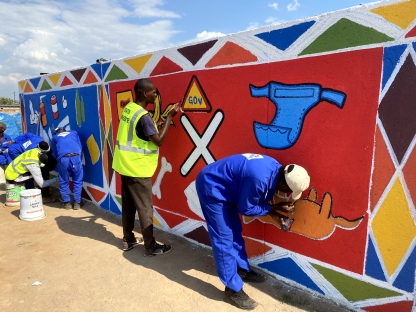
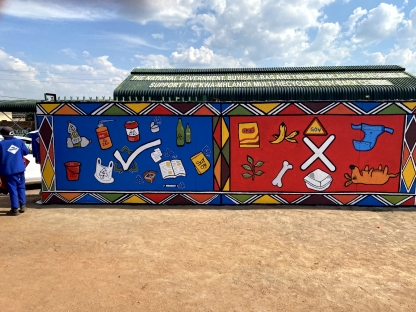
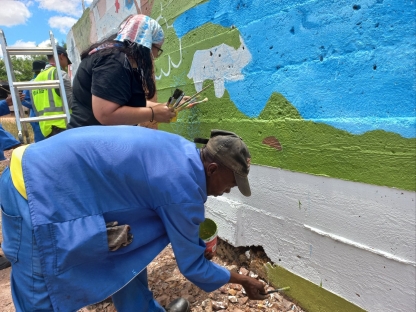
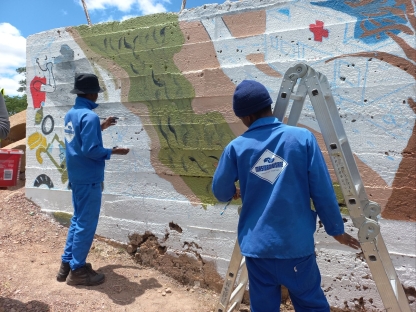
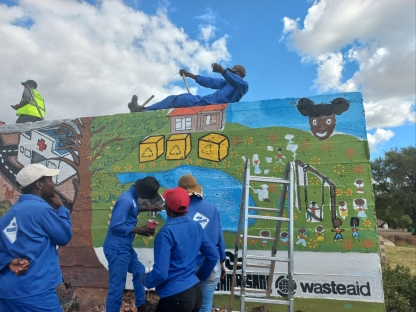
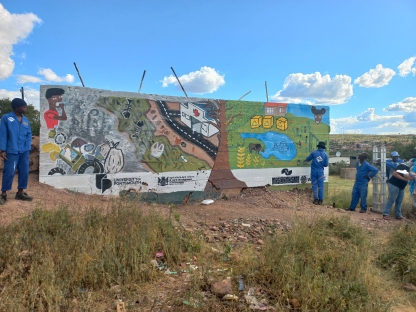
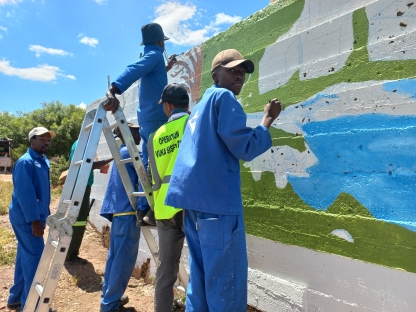
Funding
The project was funded by Waste Resources Action Programme (WRAP) and UK Research and Innovation (UKRI) as part of the International Circular Plastics Flagship Competition.


Project Partners


Project members at the University of Portsmouth
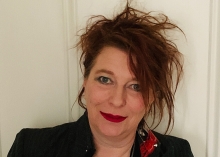
Media ready expert
Professor Cressida Bowyer
Related stories and pages
Revolution Plastics Institute
From combatting microplastics to analysing plastic policies around the globe, we’re putting our research into practice, working with local groups, organisations, businesses and individuals to solve the planet's plastic problem.
